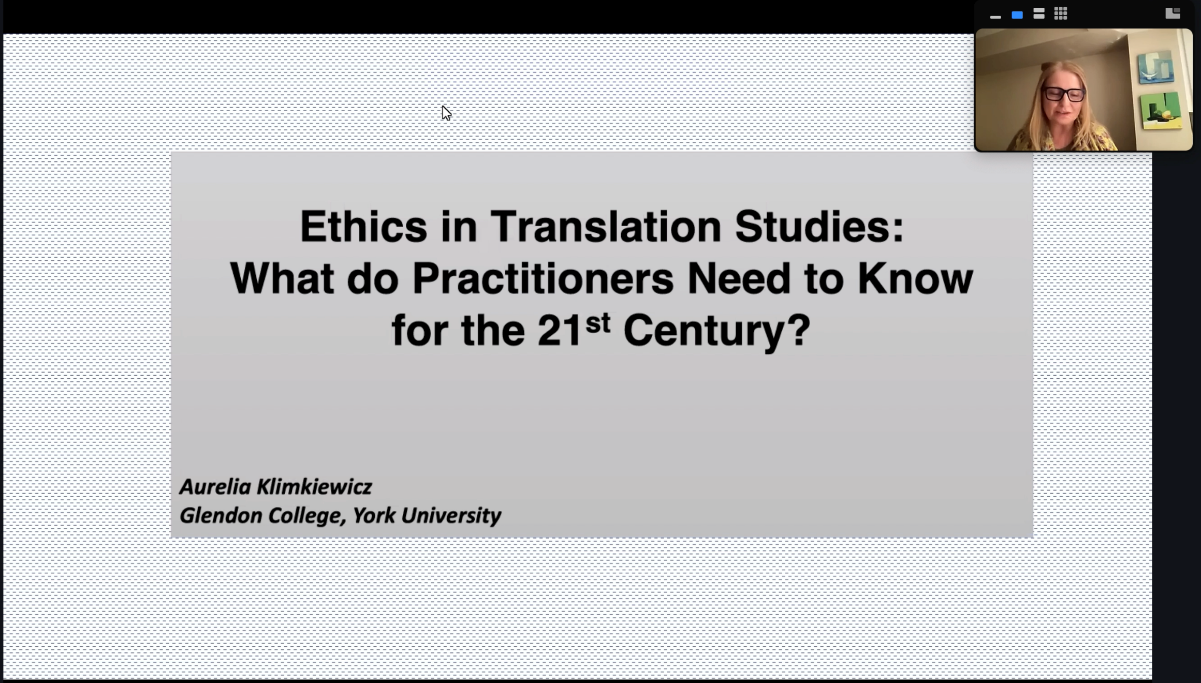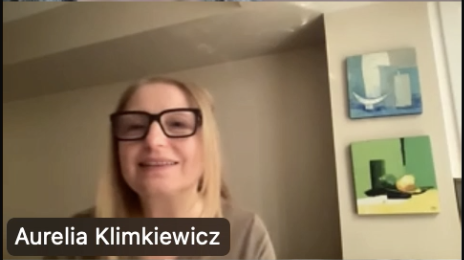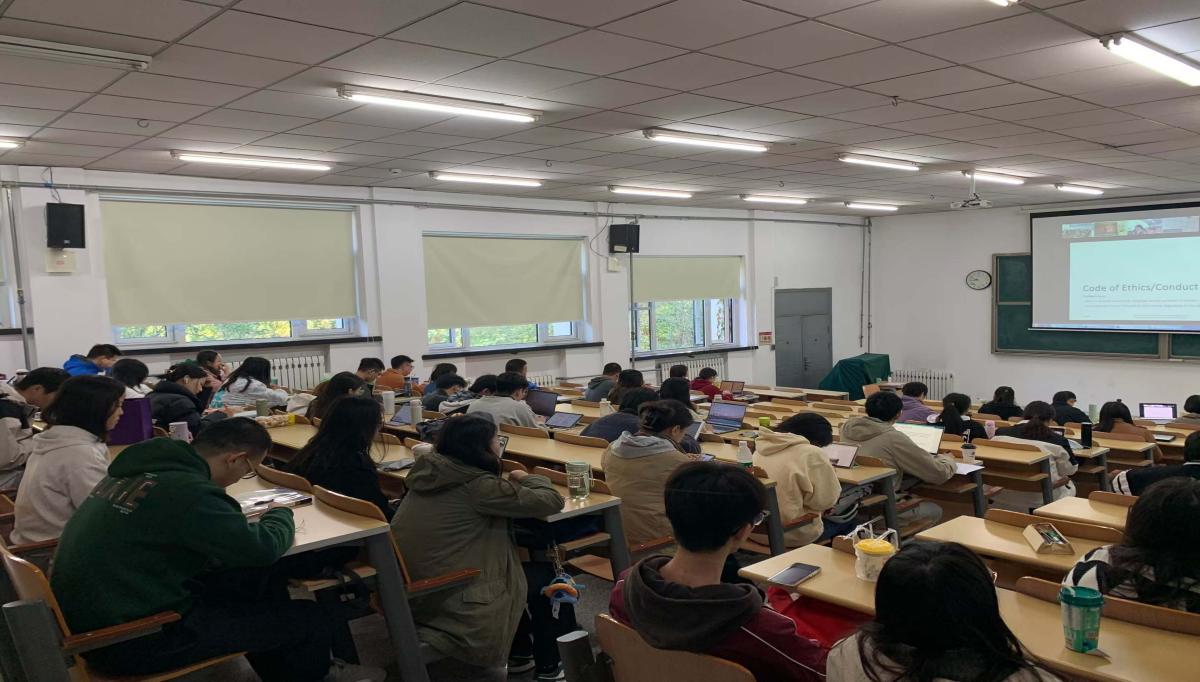On the morning of October 21st, 2024, Professor Aurelia Klimkiewicz, Director of the Centre for Research on Language and Culture Contact at Glendon of York University, was invited to present a lecture entitled “Ethics in Translation Studies—What do Practitioners Need to Know for the 21st Century?” through the Zoom platform. More than 70 colleagues from the translation field participated in the live broadcast of this international exchange lecture in Room 209 of the School of Foreign Studies (SFS).


Professor Aurelia Klimkiewicz is a renowned scholar in the international field of translation theory research, with a focus on translation ethics research, translation and pluralism, translation history research, literary translation and English-French translation for many years. She is one of the first recipients of a PhD degree in Translation Studies in Canada and has served as an expert reviewer for many academic journals, such as Meta and TTR. Her contributions to teaching, research, and the development of the translation discipline at York University’s School of Translation are highly regarded.
The lecture was hosted by Professor Miao Ju, director of the Research Center for Translation Studies, who also provided commentary on the lecture’s content. The lecture not only provided a systematic discussion of translation ethics theory, but also delved into the theoretical application of translation ethics studies and its profound description of social translation practice. The lecture was divided into four main aspects: (1) the origin of translation ethics studies and the process of theme extension and development under the social background; (2) the developmental lineage of translation ethics studies and the contributions of its theorists in the course of the theoretical development of translation study; (3) a detailed explanation of the main concepts, perspectives and theoretical constructions of translation ethics studies, and the related theoretical models and application characteristics; and (4) professional translators’ ethics and professional ethics in social practice, and the depict of the ethical norms for translators in the translation ecosystem.

Prof. Aurelia Klimkiewicz started from the turn of translation ethics studies in the 1980s and analyzed the origins of translation ethics studies and its disciplinary discourse in detail. She then analyzed the theoretical types and models in the study of translation ethics. Based on the conceptual analysis of “ethics” and its related concepts, she explained the interactive relationship between ethical studies and interpretation studies. In the case of interpreting practice, she suggested that Community Interpreting is a tripartite exchange activity involving the speaker and the communicative object, which demonstrates how to address ethical challenges and role changes from the neutral position of the interpreter in practice. Finally, the lecture presented the ethical dilemmas and choices faced by interpreters in the process of community interpreting practice with three case studies from the dissertation of Prof. Miriam Shlesinger, a well-known scholar in translation studies.
The lecture was given in a warm and academic atmosphere. During the interactive session, students and teachers actively participated in the discussion and raised questions, while Prof. Aurelia Klimkiewicz provided explanations and guidance carefully. In addition to feeling deeply inspired and enlightened, teachers and students attending the lecture were also deeply impressed by the profound theoretical insights.





